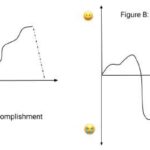Navigating the professional landscape can present unique challenges, and for individuals with Asperger’s Syndrome or Autism Spectrum Disorder (ASD), finding the right career path is particularly crucial. While traditional career routes may not always align with their strengths and ways of thinking, the rapidly expanding world of technology, specifically programming and coding, offers a promising avenue for fulfilling and successful careers. Peter M. Souza Jr., diagnosed with ASD at 33, shares his inspiring journey into coding, highlighting the transformative impact of specialized programs like Coding Autism.
Peter M. Souza Jr., a coding student, enthusiastically participates in a coding session, showcasing the focused engagement often seen in individuals with ASD thriving in tech-related fields.
For Peter, like many others on the spectrum, the path to finding a suitable career felt isolating and directionless. “For years I studied code on my own, learning a hand-full of languages, with no cohesive direction,” he explains. This sentiment resonates with many individuals with ASD who possess a natural aptitude for logical thinking and detail-oriented tasks, qualities highly valued in programming. However, the traditional educational and professional environments often lack the tailored support needed to effectively channel these abilities into a viable career. The frustration of self-learning without industry insights and the constant questioning of skill relevance can lead to fatigue and discouragement.
Coding Autism emerged as a turning point for Peter, offering a structured environment that addressed the specific needs of individuals with ASD in the tech industry. He describes it as finding “home and hope and optimism,” emphasizing the relief of being understood and guided. This feeling of belonging and targeted support is crucial. Programs like Coding Autism recognize the neurodiversity advantage, understanding that individuals with ASD often bring unique strengths to coding, including:
- Exceptional Attention to Detail: A hallmark of ASD, this trait is invaluable in debugging and writing precise code.
- Logical and Analytical Thinking: The systematic and rule-based nature of coding aligns perfectly with the cognitive strengths of many individuals with ASD.
- Focus and Persistence: The ability to hyper-focus, often observed in individuals with ASD, can be a significant asset for complex coding projects.
- Unique Problem-Solving Skills: Thinking outside the box and approaching problems from different angles can lead to innovative solutions in software development.
However, it’s equally important to acknowledge the challenges that individuals with ASD might face in traditional learning or work environments. These can include:
- Communication and Social Interaction: Navigating team dynamics and workplace communication can be challenging.
- Sensory Sensitivities: Office environments might present sensory overload for some individuals.
- Executive Functioning: Organization, planning, and time management might require specific strategies and support.
Coding Autism and similar programs bridge this gap by providing:
- Industry-Relevant Curriculum: Focusing on skills that are directly in demand by tech companies, removing the guesswork of self-directed learning.
- Project-Based Learning: Developing practical skills through real-world simulations and project roadmaps, crucial for demonstrating competence to future employers.
- Mentorship and Community: Providing a supportive network of peers and mentors who understand the ASD experience, fostering collaboration and reducing isolation.
- Soft Skills Development: Addressing communication, teamwork, and presentation skills in a supportive and tailored manner.
- Industry Partnerships: Facilitating connections with companies actively seeking neurodiverse talent, opening doors to internships and employment opportunities.
Peter’s experience underscores the importance of these elements. He highlights learning “how to organize and present detailed project roadmaps,” a skill essential for professional software development. Furthermore, the exposure to diverse skill levels within the program and the opportunity to learn both “how to teach, and teaching me how to learn” are invaluable for career growth and adaptability in the tech industry. This holistic approach, addressing both technical and soft skills, is what sets apart programs designed for neurodiversity.
The GameStop Gives logo represents the NXT GEN Coders Program, a collaborative initiative with Autism Speaks, highlighting the growing recognition and corporate support for neurodiversity in tech.
The NXT GEN Coders Program, powered by GameStop and administered by Autism Speaks, exemplifies this growing recognition. By encouraging programs that teach digital skills to individuals across the autism spectrum, initiatives like this are not only empowering individuals but also enriching the tech industry with diverse talent. Peter’s journey from self-taught coder to confidently entering the tech industry through Coding Autism is a testament to the potential unlocked when specialized support meets the inherent strengths of individuals with Asperger’s and ASD. As the demand for skilled programmers continues to rise, recognizing and nurturing neurodiversity is not just a matter of inclusion, but a strategic advantage for the tech world and a pathway to fulfilling careers for countless individuals.

